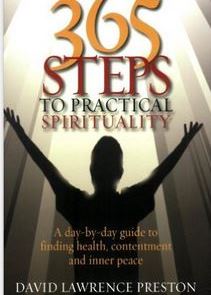We’ve always known that there’s a connection between the body and the mind, but for several centuries doctors in the West regarded it as relatively unimportant. The emphasis was on fixing bodies, rather like a mechanic fixing a car. If a part wasn’t working, mend it. If that didn’t work, replace it. The body was seen as a slab of meat with no intelligence of its own.
Nowadays, few would deny that mind and body are not just intimately related, but as one. The evidence is just too compelling.
Anxious feelings can give rise to headaches, an upset stomach, constipation and accident proneness etc. Upset can also lead to loss of appetite, weight loss and a pale, drawn appearance. Depression brings on a feeling of tiredness and lethargy…. And so on.
In contrast, a lover’s touch can send shivers down the spine and make the heart race. And when you’re happy, don’t you feel more alive and have more energy? Happy people need less sleep, and are less likely to catch a cold or other infection because the body is stronger and more resistant to infection.
The common cold is a good example. Colds and ‘flu are caused by a virus, but we are more than just passive ‘hosts’ to these unpleasant germs – research shows that we have some control over whether the virus takes hold.
In one experiment, volunteers were exposed to cold germs. Some became ill, others stayed well – even thought they had all been in the same room. Those who showed resistance to the germs were those who were happy and felt most in control of their own destinies.
Fact: people who feel stressed or under threat (real or imagined) are at greater risk of becoming ill. A single thought can bring about over a hundred biochemical changes in your body instantly.
The most dangerous emotions
The most dangerous emotions from a health point of view, are fear, anger and hostility. Holding on to these destructive emotions causes changes in the autonomic nervous system, increases the heart rate and breathing, elevates blood pressure, tenses the muscles, and raises the level of free fatty acids in the blood, which can lead to migraines, hypertension, coronary heart disease and strokes.
In one study, researchers found that young adults who were antagonistic towards others were seven times more likely to be dead by the age of fifty. Low frustration tolerance is, in fact, a more reliable predictor of an early death than smoking, high cholesterol or high blood pressure.
One hundred years ago, Sigmund Freud wrote: ‘Often repressed emotions will manifest either as behavioural problems or physical problems’. Although widely derided at the time, many experts now agree. Here’s a quote from a leading contemporary British doctor, Dr Gabriella Pulse, who takes a special interest in the mind-body connection:
‘One of the reasons, I think, that people feel their emotional pain through bodily functions is that sometimes the true emotions are too painful to experience, and experiencing them through a bodily pain keeps them one step removed.’
Some experts predict that they’ll soon be able to identify people at risk of contracting serious diseases from their psychological profiles. Others would go even further. In her book, ‘The Bodymind Workbook’, Debbie Shapiro (who has devoted a lifetime to studying these issues) suggests there is a direct link between our attitudes and emotions, and afflictions in specific parts of the body. For example:
- If you have problems with your ears, it’s because you cannot accept what you’re hearing and subconsciously withdraw energy from the hearing ability.
- Similarly, she writes, eye problems indicate problems with your perceptions.
- Shortsightedness suggests introversion; inability to project yourself externally.
- Long-sightedness results from an extrovert and gregarious nature, ignoring the ‘here and now’ in favour of dreaming about the future.
- Eyestrain implies trying too hard to find answers outside, rather than looking inwards for explanations and resolution.
- Blurred vision denotes confusion: your version of reality is not in harmony with the facts, and you’re having difficulty accepting what you’re seeing.
- Stomach problems mean you are finding something hard to digest.
Far fetched? What do you think? Perhaps if you believe it, it’s true. For you.
©David Lawrence Preston, 1.7.2016
Follow me on Facebook and Twitter @Feelinggoodatt
How To Books, 2007


Leave a Reply